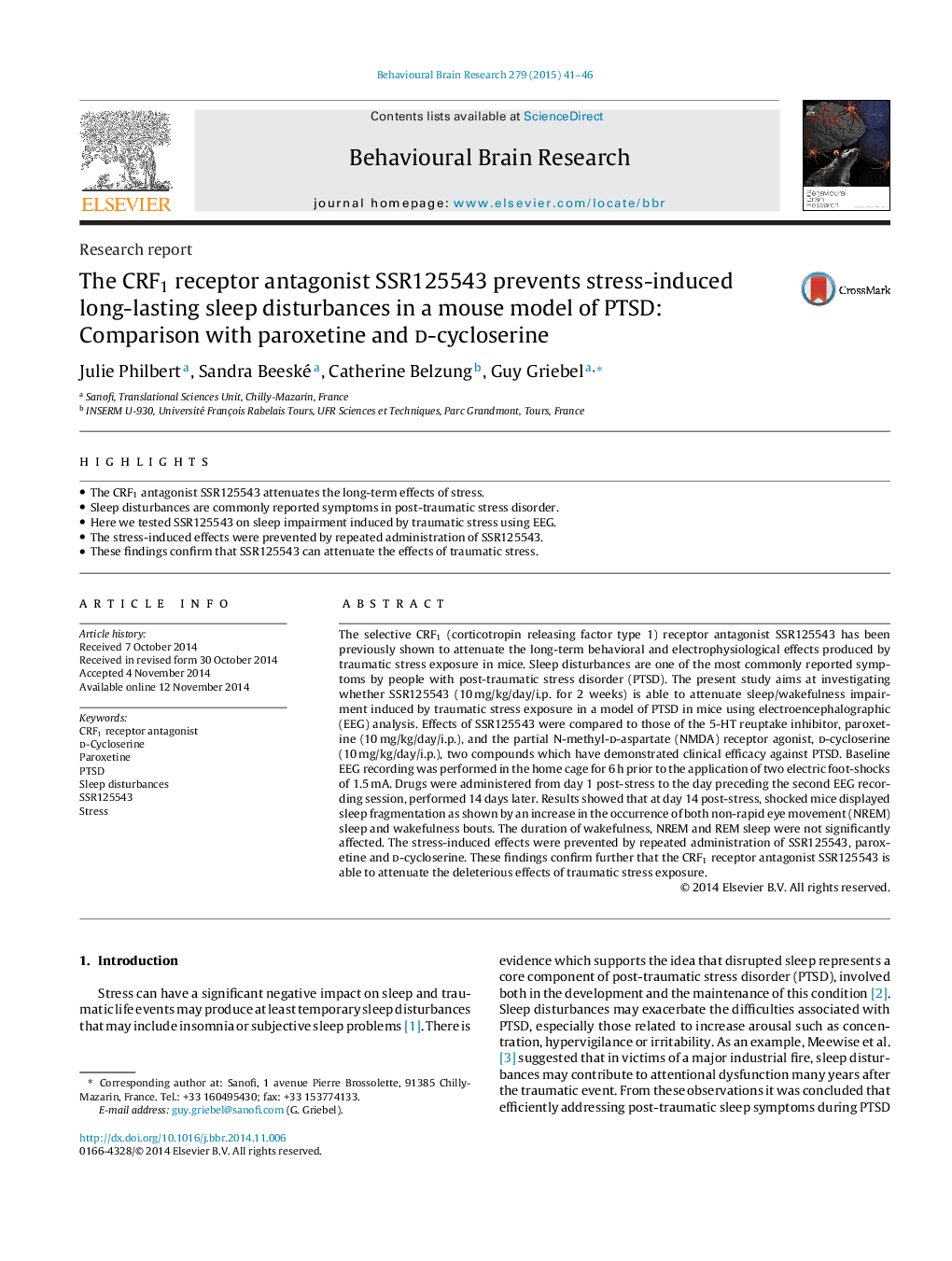| Article ID | Journal | Published Year | Pages | File Type |
|---|---|---|---|---|
| 6257317 | Behavioural Brain Research | 2015 | 6 Pages |
â¢The CRF1 antagonist SSR125543 attenuates the long-term effects of stress.â¢Sleep disturbances are commonly reported symptoms in post-traumatic stress disorder.â¢Here we tested SSR125543 on sleep impairment induced by traumatic stress using EEG.â¢The stress-induced effects were prevented by repeated administration of SSR125543.â¢These findings confirm that SSR125543 can attenuate the effects of traumatic stress.
The selective CRF1 (corticotropin releasing factor type 1) receptor antagonist SSR125543 has been previously shown to attenuate the long-term behavioral and electrophysiological effects produced by traumatic stress exposure in mice. Sleep disturbances are one of the most commonly reported symptoms by people with post-traumatic stress disorder (PTSD). The present study aims at investigating whether SSR125543 (10Â mg/kg/day/i.p. for 2 weeks) is able to attenuate sleep/wakefulness impairment induced by traumatic stress exposure in a model of PTSD in mice using electroencephalographic (EEG) analysis. Effects of SSR125543 were compared to those of the 5-HT reuptake inhibitor, paroxetine (10Â mg/kg/day/i.p.), and the partial N-methyl-d-aspartate (NMDA) receptor agonist, d-cycloserine (10Â mg/kg/day/i.p.), two compounds which have demonstrated clinical efficacy against PTSD. Baseline EEG recording was performed in the home cage for 6Â h prior to the application of two electric foot-shocks of 1.5Â mA. Drugs were administered from day 1 post-stress to the day preceding the second EEG recording session, performed 14 days later. Results showed that at day 14 post-stress, shocked mice displayed sleep fragmentation as shown by an increase in the occurrence of both non-rapid eye movement (NREM) sleep and wakefulness bouts. The duration of wakefulness, NREM and REM sleep were not significantly affected. The stress-induced effects were prevented by repeated administration of SSR125543, paroxetine and d-cycloserine. These findings confirm further that the CRF1 receptor antagonist SSR125543 is able to attenuate the deleterious effects of traumatic stress exposure.
